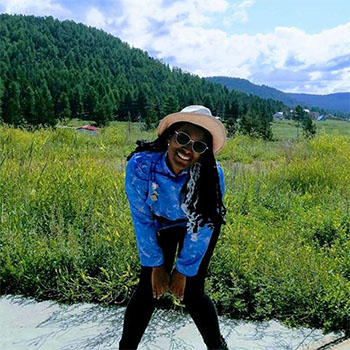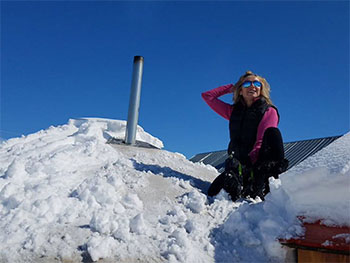Peace Corps Mongolia To Be Evacuated Due to Virus
Kaelynn Williams, 25, thought she had about six more months in Mongolia, where she has been working as a Peace Corps volunteer for almost three years.
But this week all volunteers in her program were told they had to go home. For Williams, that means returning to Southwest Philadelphia and hoping she can get back to Mongolia.
“We’re crossing our fingers to make sure, to see if that’s possible,” she said.
There haven’t been any confirmed cases of coronavirus in Mongolia, but it has hit nearby countries hard. Mongolia borders China, where the virus began, and Mongolian Airlines has canceled flights to and from China, South Korea, and Japan.
The Peace Corps is a service program run by the U.S. government that sends volunteers to countries worldwide in fields such as education, agriculture, youth in development, environment, community economic development, and health. Most volunteers serve in a two-year-program with an additional three months of training. Mongolian volunteers work within their assigned communities on health and education projects, and learn the local languages, including Kazakh and Mongolian.
The way Williams and another third-year volunteer leader, Sean McLaughlin, 27, of Middletown, N.J., understand it, the program is being suspended because of all the flight cancellations. If a volunteer were to become infected with coronavirus, they said, there would not be a proper medical evacuation route available.
Though Williams and McLaughlin are disappointed to be leaving Mongolia sooner than expected, they understand why the Peace Corps made this decision and are grateful the agency is making sure they are safe.
An agency spokesperson confirmed that more than 90 volunteers from Mongolia were told Wednesday that the Peace Corps would begin evacuating them “due to travel constraints and ongoing school closings related to the COVID-19 outbreak.”
“The health, safety and security of volunteers are the Peace Corps’ highest priorities,” an agency spokesperson wrote in an email.
Williams isn’t sure when she will be evacuated. As one of the volunteers who has been with the program the longest, she said, she will leave after the others have departed.
She’s been working as a health volunteer, first as a health teacher in the southern part of Mongolia and now in the capital, Ulaanbaatar, as a volunteer leader. Her most recent job includes working with Beautiful Hearts, a non-government organization that focuses on protecting children from domestic and sexual violence.
“It’s definitely frustrating because all of our projects are put on hold,” she said. But, she said, “just because we’re evacuating doesn’t stop me from doing my work.”
She’s already been working remotely in Mongolia this month by working from the Peace Corps office instead of her project site. Her organization wanted to ensure health and safety amid the coronavirus outbreak, she said, especially since her job includes directly interacting with children. She hopes to keep in touch with Beautiful Hearts from Philadelphia, through email or other methods, and help any way she can.
Volunteers “are leaving an entire community, entire environment they have been immersed in one, two years,” she said. As a leader, she said, she has “to basically be their strength and shoulder they can cry on at any time. We are doing our best. We had time to process everything that’s been happening, and we just decided to move forward and stay positive.”
Jacqueline Eastridge, 59, of Wyndmoor, was in Mongolia for 21 months and would have gone home around the middle of July.
As part of the evacuation, the former corporate paralegal at Philadelphia-based Pepper Hamilton LLP was on the road for 14 hours Friday and was too tired to talk about her experience. She had been living in Arkhangai province and teaching English at Tsenkher Soum Secondary School.
In a video, she showed what life is like in Mongolia:
McLaughlin, the other third-year volunteer leader, also said he wasn’t sure exactly when he would leave.
He’s been working with Special Olympics Mongolia and implementing programs with coaches and physical education school teachers to develop motor skills for children and athletes with learning disabilities.
He’s hoping that within two to three months he can go back.
“It’s tough,” McLaughlin said. “I wasn’t ready to leave.”



No comments yet.
Add your comment